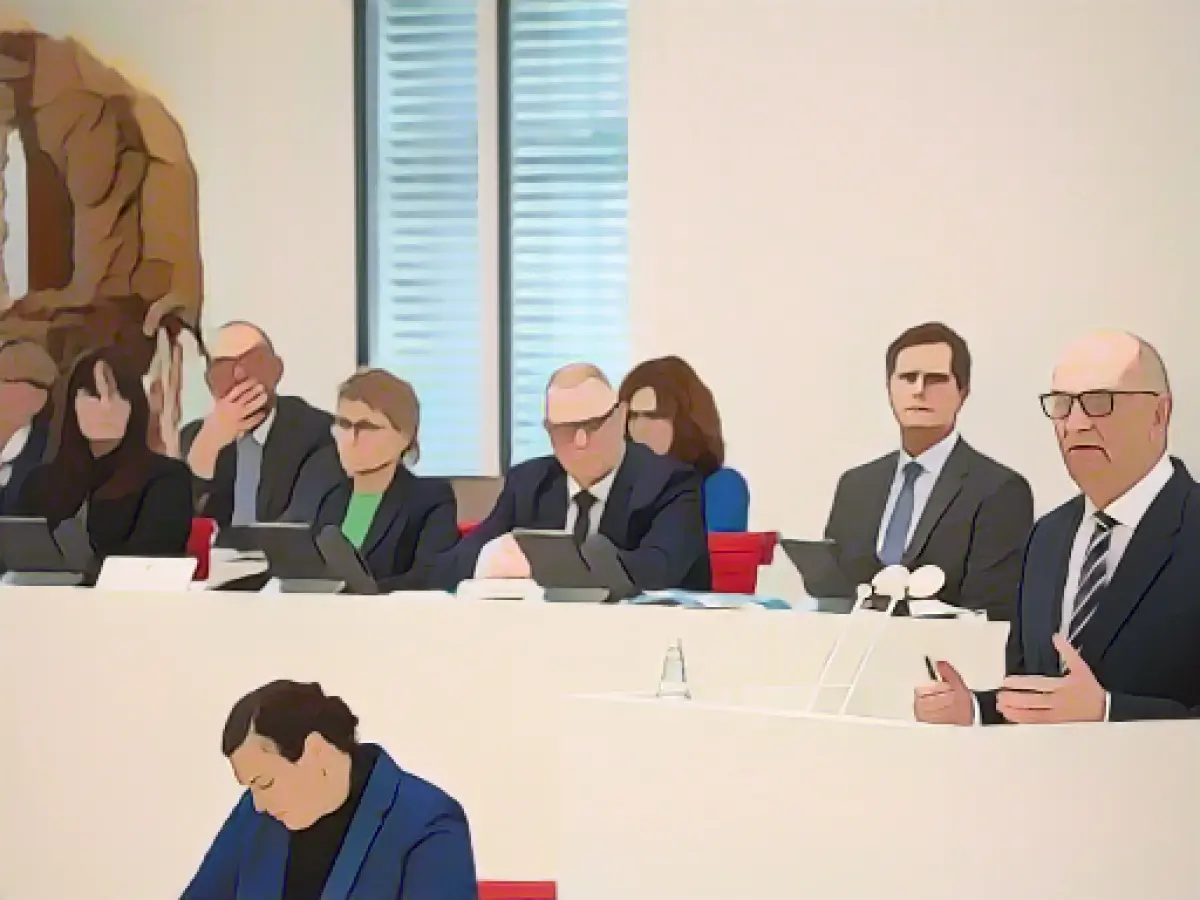Brandenburg State Parliament Debate Erupts in Controversy
A heated debate on combating anti-Semitism in the Brandenburg state parliament led to a scandalous outburst from the left-wing group leader, Sebastian Walter. On Thursday, he aimed explicit insults at AfD parliamentary group leader Hans-Christoph Berndt and state parliament vice president Andreas Galau. Walter later acknowledged calling both individuals "Nazi pigs," although the state parliament president, Ulrike Liedtke, claimed to have only become aware of the initial slur after Walter mentioned it during the plenary session. Liedtke subsequently intervened and reprimanded Walter.
In response, Galau demanded a special meeting of the Presidium and indicated that he would consider filing criminal charges. The AfD parliamentary group had besieged the other parties during the debate by implying that the influx of refugees was a catalyst for importing anti-Semitism.
The incident sparked a broader conversation about the AfD's stance on extremism, especially in relation to religion and anti-Semitism. The party's comments were criticized for potentially contributing to religious intolerance.
Contextual Insights:
The AfD, a far-right political party in Brandenburg, has faced considerable scrutiny due to its controversial views on religion and anti-Semitism. The Federal Office for the Protection of the Constitution (BfV), Germany's domestic intelligence agency, has designated the AfD as a "suspected" far-right extremist organization, following their questionable activities and rhetoric.
Some of the AfD's most prominent figures, like Alexander Gauland and Björn Höcke, have been accused of excusing Holocaust perpetrators and disparaging the reappraisal of Nazi-era atrocities as "anti-German."
In 2017, ten AfD Bundestag members were implicated in a private Facebook group marked by widespread antisemitic, racist, pro-Nazi, and conspiratorial posts. The party has also faced accusations of minimizing the Holocaust and condoning antisemitism.
The AfD's anti-Muslim rhetoric is equally troubling. The party has cited Islam as a threat to Germany, asserting that its expansion poses a danger to the country's state, society, and traditional values.
This negative sentiment has manifested in provocative campaigns, such as distributing "deportation tickets" in mailboxes to individuals with perceived immigration backgrounds. Such actions have prompted investigations by the criminal police on charges of inciting hatred.
Notably, the AfD's youth wing has utilized social media to campaign against modern feminism, aligning itself with groups that are critical of feminism.
With this complex background, the AfD's disparaging comments during the anti-Semitism debate have drawn strong criticism and raised concerns regarding its contribution to religious intolerance.







